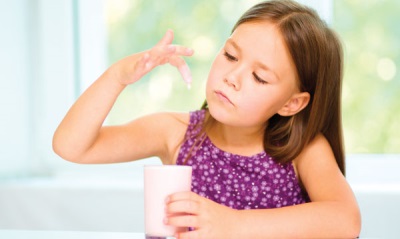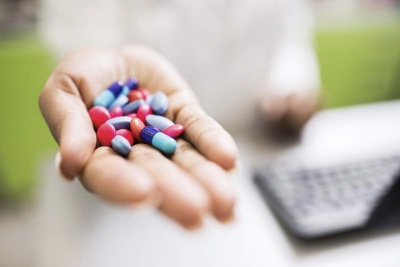Probiotics for children with antibiotics
Treatment with antibiotics in many cases is very important because it helps to successfully eliminate dangerous microorganisms from the child’s body. However, these drugs have a specific list of side effects. One of them is dysbacteriosis, since antibacterial agents do not distinguish between beneficial intestinal bacteria and harmful microbes at the site of inflammation. They equally inhibit all microorganisms, as a result of which in 5-40% of cases of treatment of antibiotics in children there are disorders of the digestive system. This is the reason for the appointment probiotics.
How to act?
Probiotic drugs used in antibiotic therapy:
- Oppose pathogenic and opportunistic bacteria, colonizing the intestines of a child.
- They are involved in the production of vitamin K, folic acid, biotin and other beneficial substances.
- Strengthen local immunity, and also generally stimulate the immune system.
- It helps to quickly eliminate allergic reactions to antibiotics.

Proof of effectiveness
In recent years, a large number of studies have been carried out on the effects of probiotics on the intestinal flora. For example, in 2002, a large study was conducted, which gathered the results of 9 surveys. They were attended by people who were treated with antibiotics.
One group of volunteers was given an additional probiotic, and the second - a placebo (a fake drug without any effect under the guise of a probiotic). According to the results of the meta-analysis, it was confirmed that probiotics are really effective in diarrheacaused by antibiotic therapy.
Why are probiotics better than dairy products?
In fermented milk products, which are sold in our stores, there are mainly lactobacilli. Their resistance is not as high as that of the strains of microorganisms included in modern probiotic preparations. It is important not only to ensure the entry of valuable bacteria into the digestive tract, but also their survival in the intestine.
That is why you should not replace the treatment with probiotics with kefir and other dairy products, but replenishing the diet with such products will be a good support for taking probiotics in the form of medicines. Give your child a daily yogurt, kefir, before bedtime ryazhenka and other dairy products. Read more about such products in the article about prebiotics.
When are they taken?
Probiotics are often prescribed at the same time as taking an antibiotic, because under the influence of an antimicrobial drug, beneficial microorganisms are destroyed on a par with pathogens, and drugs with probiotic action replenish the number of bacteria that are valuable to our intestines. Such an appointment will not give a chance to grow conditionally pathogenic and pathogenic bacteria in place of destroyed lactic acid bacteria and other representatives of the intestinal flora.
Quite often, probiotics are prescribed to children immediately after treatment with antibiotics, in order to increase local and general immunity, eliminate allergic reactions that have appeared, and normalize digestive function.
Admission Rules
- Depending on the drug, a probiotic can be taken from 1 to 6 times a day during meals.
- Preparations of the probiotic group cannot be washed down with any hot drink, since at temperatures above +45 degrees the vital activity of the bacteria contained in them is disturbed.
- The duration of intake of probiotic agents should be selected individually. They can be prescribed prophylactically only at the time of taking antibiotics, and when diarrhea appears, the treatment will be longer (sometimes even several months).
- Capsule preparations for small children are opened, and their contents, divided into parts, are added to a non-hot liquid or other food. At the same time it is impossible to store the diluted drug.
- It is important for parents to monitor the shelf life of the acquired probiotic, since after its completion the drug will no longer contain the required number of bacteria.
- At the same time it is necessary to adjust the diet of the crumbs. During the period of illness and recovery, one should not give baby food that will be a big burden on his body, for example, fatty foods. Make sure the child eats enough food with fiber, as it supports the growth of beneficial microorganisms in the intestines.











